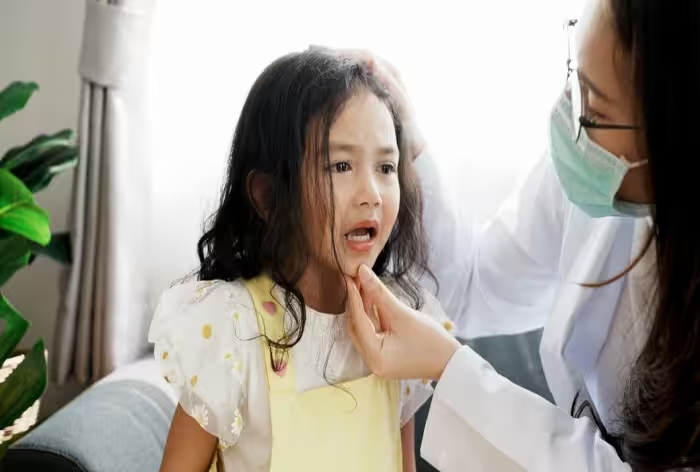Delhi Is Seeing An Increase In Mumps Cases: Why Are Children More At Risk Of This Viral Illness? Five Ways To Avoid It
There has been a sharp increase in measles cases. Experts have seen an increase in the number of viral infections in a number of states, including Kerala, Andhra Pradesh, Maharashtra, and Delhi-NCR, in recent months. The virus that causes the mumps mostly affects children. The majority of individuals have flu-like symptoms, while sometimes they may not have any at all.

Possible mumps symptoms include fever, sore throat, throat swelling, appetite loss, headache, and so on. Prolonged aftereffects and pain are caused by inflammation of the salivary glands and testicles. The illness often lasts for one week or more. Even though Delhi-NCR hasn’t developed into a cluster hotspot just yet, such a sharp rise in other states might potentially result in additional problems, including meningoencephalitis, orchitis, and higher morbidity.
MUMPS IN DELHI: WHY ARE YOUNGER PEOPLE MORE SUFFICIENT?
Due to a number of variables, including their maturing immune systems and greater exposure to the virus in close-contact settings like schools and childcare centers, children are more susceptible to contracting the mumps. An inactive lifestyle weakens the immune system. One further factor contributing to it is a lack of knowledge regarding vaccinations.
5 MUMPS PRECAUTIONS RELATING TO IMMUNATIONS: Make sure your youngster gets the MMR (measles, mumps, and rubella) vaccination in the prescribed dosages. The mumps and its effects may be effectively avoided with the vaccination. Usually, a child receives the first dosage between the ages of 12 and 15 months, and the second dose between the ages of 4 and 6.
Continue to Practice Good Hygiene: Encourage your kid to follow basic hygiene practices, such as routinely washing their hands for at least 20 seconds with soap and water, particularly before and after using the toilet. In order to stop respiratory droplets from spreading, teach children to cover their mouth and nose when they cough or sneeze with a tissue or their elbow.
Prevent Sharing Personal Items: Tell your kids not to share drinking glasses, cutlery, or towels with other people. The risk of transmission may be decreased by avoiding direct contact with possibly contaminated fluids, since mumps can spread through respiratory droplets or saliva.
Minimize Close Contact with Infected Others: If your neighborhood is experiencing a known mumps epidemic or if someone in your family is afflicted, keep your kid away from others who are ill. Avoiding close contact may help lower the chance of transmission since the mumps is infectious.
Remain at Home When Sick: If your kid exhibits any of the mumps’ symptoms, including fever, headaches, swollen salivary glands, or sore muscles, keep them at home from daycare or school and get medical help. By doing this, the infection will be kept from spreading to other people.
It’s crucial to remember that these safety measures are just suggestions; for more detailed information and direction, it is best to speak with a healthcare provider or abide by the rules set out by your local health authority.







